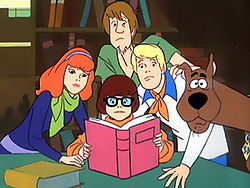What
do an all-inclusive resort, a mobile device, a phone company, and
marriage all have in common? We have come to expect the same thing from
all of them: one-stop, all-in-one convenience.
Photo Credit: TheFutureIsUnwritten via Compfight cc
All-inclusive convenience.
As consumers, we have come to expect this.
An iPhone is a one-stop shop in our pockets: phone, email, text, iPod, maps, news, personal calendar, family calendar, eBook reader(s), weather forecasts, Netflix and YouTube, and the list goes on and on.
All-in-one convenience.
As consumers, we have been trained to feel entitled to this.
In Chicago, AT&T bundles home phone, mobile phone, internet, and cable service. They recently added home security. I wonder when they’ll add babysitting to the bundle. I bet they’re beta testing it right now.
As consumers, we’ve been sold a lucrative lie called convenience, and it has infiltrated every aspect of our lives.
Including marriage.
Why Marriage is Ripping
In the last several decades, we have come to expect our marriages to serve an endless list of functions for us. We want our marriages to be the place we find romance and friendship and community and entertainment and security and self-esteem and direction and purpose and meaning.Marriage has become life’s ultimate convenience store—an existential one-stop shop expected to meet all of our physical, mental, emotional, and spiritual needs.
I think the biggest threat to marriage is this idealized, consumer-oriented, convenience store mentality we now bring to our wedding day.
Because when we act like we’re marrying a Walgreen’s instead of a person, marriage becomes an end unto itself. It becomes our one focus, our one purpose, and our one source of satisfaction. Our lives shrink as the expectations of our partner expand.
Many of us have put all our existential eggs in the marriage basket. And the basket is ripping beneath the strain of it. So then we compound the problem by spending all of our time trying to stitch the marriage back together, hoping it will hold all of our hopes and expectations again.
Maybe, instead, we need to spend some of our time finding other baskets.
Marriage is Not an All-Inclusive Hotel
I suppose it sounds like I’m recommending infidelity or lukewarm love or questionable commitment, but I’m not. I’m suggesting we will become more loving and more committed when we quit making marriage the only place we find purpose and meaning.Last August, we were with friends in Honolulu, and one of them got angry about the all-inclusive hotel and its plethora of services. He said it was the hotel’s way of tricking people into spending all their time and money there, discouraging guests from going out into the city and seeing the beautiful island.
He insisted on spending most of his time outside of the hotel, discovering new things. Then, after a day of exploring, he would return to the hotel to rest and recover.
I think that’s how marriage is supposed to work. It’s not supposed to be the one place we experience satisfaction in life. It’s supposed to be the place we return to—the safe place to recover—after we have ventured out into the world, to explore, to discover, to live.
Marriage is the Hub of a Rebellion
What if we can’t find enduring purpose and meaning in marriage alone, because it’s simply not there to be found? What if purpose and meaning are found as we venture out into the world,discovering we are strong enough to endure and good enough no matter what,
discovering a community or a cause that echoes the cry of our heart,
discovering how our gifts fit the needs of a broken world,
discovering how to love the unloveable (including ourselves),
discovering the grace that contains it all,
and discovering the courage to live all of it one day at a time.
Marriage is not an existential convenience store or an all-inclusive bundle of emotional services. Marriage is not the place we fight for good things—it’s the place we return to after we fight for good things, in ourselves and out in the world. It’s the place we return to:
to celebrate our victories,
to mourn our losses,
to lick our wounds,
to regain our strength,
and to be sent back out into the world again.
When lived in this way, our marriages become a celebration—a place of rejoicing and encouragement and support—and the hub of a rebellion against a world riddled with shame, meaninglessness, loneliness, despair and darkness.
Two people living with that kind of purpose become a light no darkness can withstand.
Last night, in the midst of a “family cleaning night,” I heard my daughter in her room, cleaning up and making up a silly song of her own: “By myself this is too hard, but together, we can do it. Together, we can do anything.”
Yes.
Marriage isn’t everything. But from within it, we can do anything.
What do you think about this view of marriage? Leave your comments in the comment section.

